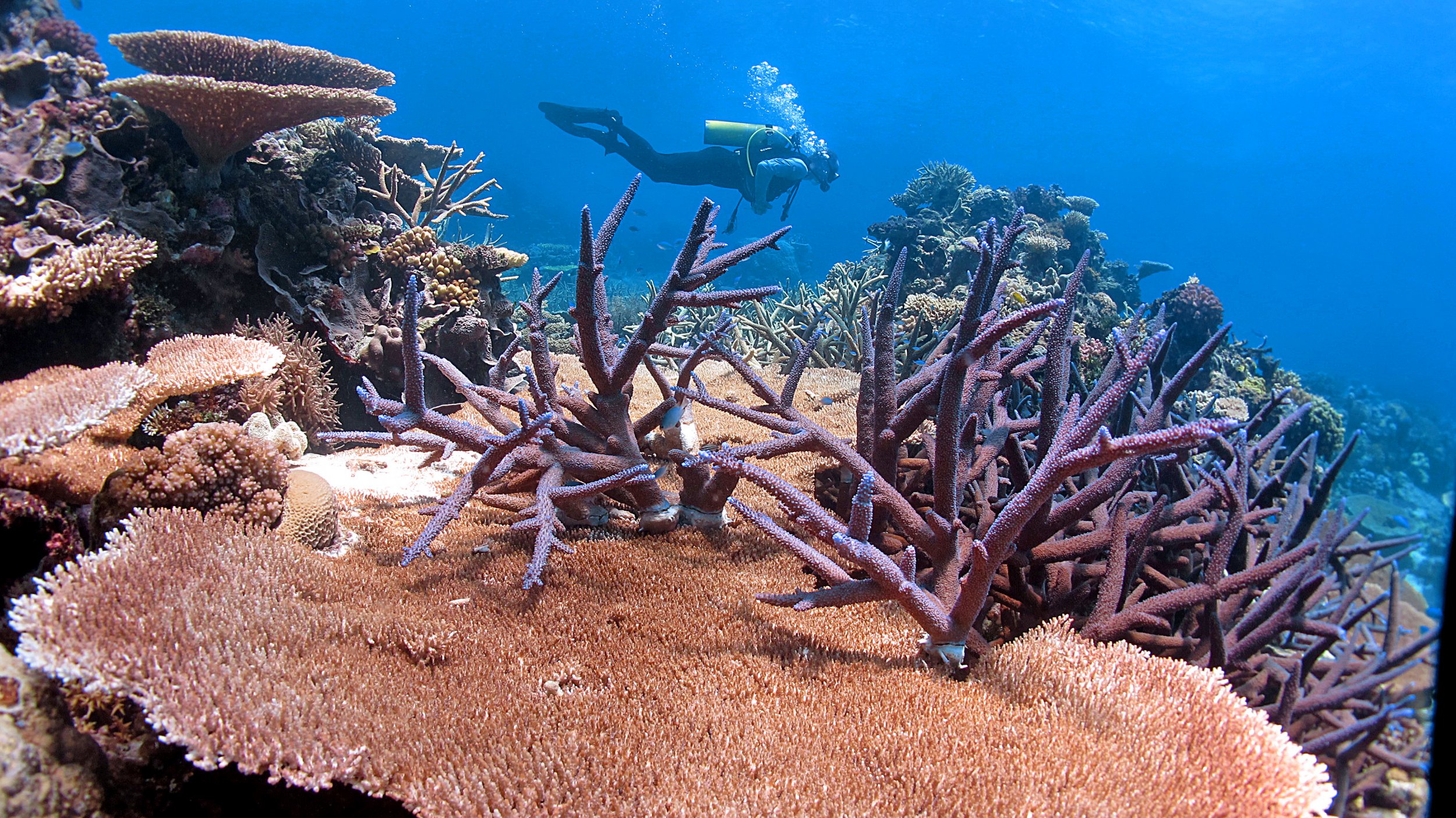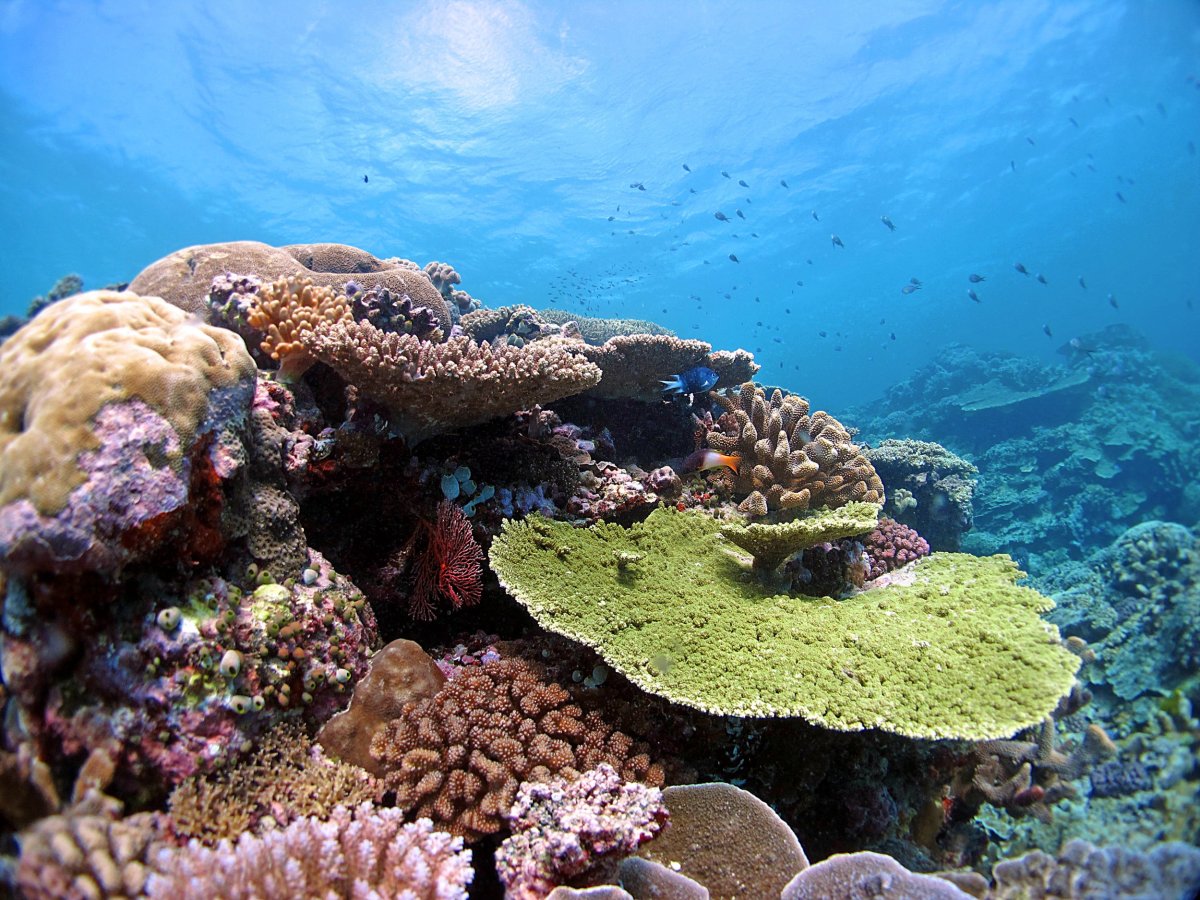
Corals are approaching a brink. Warming oceans, acidification and a constellation of other man-made stressors mean coral reefs may face extinction within the century. And with around 25 percent of all sea life, including some 4,000 species of fish, dependant on the health of coral reefs, if the corals go down, they're taking a huge swath of marine biodiversity with them.
But in a paper published Thursday in the journal Science, a team of scientists made a hopeful discovery: Heat tolerance in corals can be inherited, and at a remarkably high rate of success too; 87 percent of all differences in survival rates among the heat-stressed coral they studied was explained by how heat-tolerant the corals' parents were.
"This implies that heat tolerance could not only evolve, but evolve fast," explained Mikhail Matz, an associate professor of integrative biology at the University of Texas at Austin and an author on the paper. In other words, some corals are already capable of genetically adapting to warmer oceans. That's an exciting prospect for anyone working on reef restoration.

If heat-tolerant coral parents can have heat-tolerant coral babies, then interbreeding between more and less heat-tolerant corals has the potential to help genetically rescue the next generation of a colony. Humans, the authors posit, could potentially harness the natural genetic variation among corals to help save them. More resilient coral could be born out of "something as simple as exchange of coral immigrants across latitudes," said Line Bay, an evolutionary ecologist with the Australian Institute of Marine Science in Townsville and another author on the paper. If humans strategically move heat-tolerant, reproductively active corals to vulnerable reefs, the process of "genetic rescue" might be jump-started.
"This is occasion for hope and optimism about coral reefs and the marine life that thrive there," Matz said.
Meanwhile, a multitude of other problems face coral reefs. For example, as the paper notes, corals live a long time; from decades to centuries. With climate change poised to measurably warm and acidify oceans within the next several decades, and pollution causing oxygen depletion and "dead zones" in some areas, "it has been argued that in such long-lived organisms acclimatization rather than genetic adaptation will play the leading role in their response to climate change," the paper reads. In other words, to save reefs, something needs to be done for the coral that already exist.
"Existing genetic variation is by no means a magic bullet that will solve the problem once and for all," Matz said. "To borrow the phrase from coral acclimatization expert Stephen Palumbi from Stanford, the good news is that genetic variation will buy us some time; but it will eventually 'run out' when the warming progresses beyond the high levels seen now in natural populations. So if we want to save corals (as well as the rest of biodiversity) we will still need to come up with a solution to curb global warming as a global problem."
Uncommon Knowledge
Newsweek is committed to challenging conventional wisdom and finding connections in the search for common ground.
Newsweek is committed to challenging conventional wisdom and finding connections in the search for common ground.
About the writer
Zoë is a senior writer at Newsweek. She covers science, the environment, and human health. She has written for a ... Read more
To read how Newsweek uses AI as a newsroom tool, Click here.








